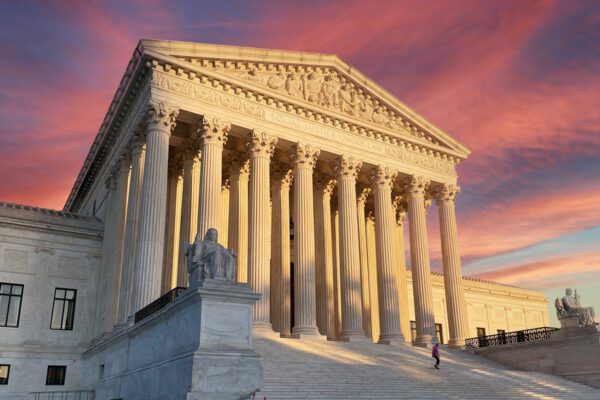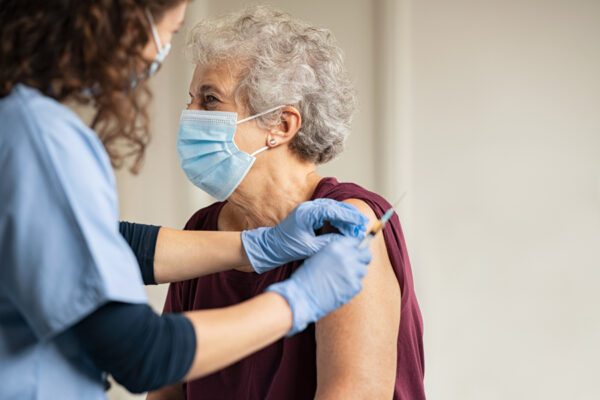You know that running a successful restaurant requires more than just good food. Before you open your doors, you must have insurance for a restaurant in place if you want to safeguard your investment, customers, and your staff.
At this point, what kind of insurance do you need for your restaurant? Most restaurants protect their commercial property and themselves from liability by purchasing a business owner policy (BOP) or basic package insurance.
What Information Should You Have Before Looking for Restaurant Insurance?
When it comes to owning and operating a restaurant, there are many responsibilities to juggle. Restaurant insurance can protect you financially against unexpected events that could jeopardize the business’s success.
Here are the considerations you must check before looking for restaurant insurance:
- Business Type and Size
- Location and Environment
- Types of Coverage Needed
- Equipment and Assets
- Number of Employees
- Estimated sales and the number of customers
- Restaurant Equipment
- Budget Constraints
What Kinds of Insurance Do You Need for Your Restaurant?
While some types of restaurant insurance are required by law, others are optional and may be more appropriate in certain circumstances. Knowing your needs and the range of coverage options is necessary to determine which insurance policies are best for you.
What is covered by restaurant insurance? To learn what coverage each of the most significant types of restaurant insurance offers, consider the following:
- Business Owner’s Policy
- Workers’ Compensation Insurance
- Business Property Insurance
- Business Interruption Coverage
- General Liability Insurance
- Spoilage Insurance
- Food Contamination Insurance
- Liquor Liability Insurance
- Employment Practices Liability Insurance
- Employee Dishonesty Coverage
- Hired and Non-Owned Auto Liability Insurance
Business Owner’s Policy
A business owner policy, also known as a BOP, protects against all the most significant property and liability risks in a comprehensive policy. However, the premium for this form of policy is typically priced at a rate that is lower than the total cost of the individual coverages that it includes because it bundles together the fundamental protections that are necessary for a business owner to have.
Why Do You Need a Business Owner’s Policy in Your Restaurant?
Imagine a scenario where an unforeseen event, such as a kitchen fire or a customer slip-and-fall incident, disrupts your restaurant’s operations. In such situations, repair costs, legal expenses, and potential loss of income can seriously jeopardize your business.
Some Coverage Included
A Business Owner’s Policy typically combines several types of coverage into a single package, offering a comprehensive shield against various risks:
- Property Insurance: This coverage protects your physical assets, such as the building itself, equipment, inventory, and furniture, against perils like fire, theft, and vandalism.
- General Liability Insurance: Accidents happen, and you could be held liable when they occur on your restaurant premises. General liability insurance covers legal expenses, medical costs, and settlements if a customer sues your restaurant due to injuries or property damage.
Workers’ Compensation Insurance
If an employee is hurt or becomes ill on the job, they will be covered by workers’ compensation insurance, which will pay for their medical expenses, lost wages, and other related costs. Most states have made this sort of insurance mandatory. Workman’s comp and workers’ comp are other names for workers’ compensation insurance.
Why Do You Need Workers’ Compensation Insurance in Your Restaurant?
In the bustling environment of a restaurant, accidents can happen. Employees are exposed to various risks, whether a kitchen mishap, a slip in the dining area, or any work-related injury.
Some Coverage Included
Workers’ Compensation Insurance isn’t a one-size-fits-all solution; it’s tailored to the unique needs of your restaurant.
To know more about the coverage included, here are the following:
- Medical Expenses: This covers the medical costs incurred due to work-related injuries or illnesses, including hospitalization, medication, and treatments.
- Lost Wages: Workers’ Compensation Insurance helps replace some of their lost wages if an employee cannot work due to injury.
Business Property Insurance
Business Property Insurance is a safety net for your company’s physical assets. It’s a type of insurance that provides coverage for your business property, including buildings, equipment, inventory, and even furniture, against a range of potential risks. These risks include fire, theft, vandalism, natural disasters, and more.
Why Do You Need Business Property Insurance in Your Restaurant?
Imagine your business as a puzzle, with each piece representing a valuable asset. Business Property Insurance helps protect those puzzle pieces from unexpected events that could disrupt your operations and financial stability. For example, if a fire damages your office space or a burglary result in the loss of expensive equipment, this insurance steps in to help cover the costs of repair, replacement, or recovery.
Some Coverage Included
Business property insurance can vary based on the specific policy and the needs of the business, but generally, it includes protection for:
- Business Interruption: Also known as business income insurance, this coverage helps replace lost income and cover ongoing expenses if your business is temporarily unable to operate due to a covered event. It can help with rent, salaries, and other financial obligations.
- Equipment Breakdown: This coverage is for repairing or replacing equipment that breaks down due to mechanical or electrical failure. It might include HVAC systems, computers, boilers, and more.
Business Interruption Coverage
Business Interruption Coverage is like a lifeline for businesses when the unexpected disrupts their operations. Insurance provides financial support when your business cannot operate due to covered events like a fire, natural disaster, or other significant disruptions.
Why Do You Need Business Interruption Coverage in Your Restaurant?
Think of it as the cushion that helps soften the blow when your business faces a setback. Imagine if a fire damaged your storefront, rendering it unusable. During this interruption, you could experience a significant loss of income due to halted operations. It can replace the income you would have earned during the downtime, cover ongoing expenses like rent and utilities, and even help you stay afloat while you work on getting your business back on its feet.
Some Coverage Included
Business interruption coverage, also known as business income insurance, helps businesses recover lost income and cover certain expenses when their operations are disrupted due to a covered event.
The coverage included in business interruption insurance typically consists of:
- Lost Income Replacement: This coverage reimburses the business for the net income it would have earned if the covered event had not occurred. This can include the profit that would have been earned during the interruption period.
- Operating Expenses: Business interruption insurance can cover ongoing operating expenses even when the business is temporarily unable to operate. This includes rent, utilities, salaries, loan payments, and other fixed costs.
General Liability Insurance
General Liability Insurance is like a protective shield every business should consider. It’s a fundamental type of insurance that provides coverage against a wide range of third-party claims, including bodily injury, property damage, and even certain advertising-related claims.
Why Do You Need General Liability Insurance in Your Restaurant?
Consider it your safety net if something goes wrong and your business is held responsible. For instance, if a customer were to slip and fall on your premises, General Liability Insurance could help cover their medical expenses and legal costs if they decide to pursue a lawsuit. It’s not just for physical incidents; it can extend to claims of libel, slander, or copyright infringement related to your advertising efforts.
Some Coverage Included
It covers third-party bodily injury, property damage, and personal and advertising injury claims.
The key coverages typically included in a General Liability Insurance policy:
- Bodily Injury and Property Damage Liability: This coverage protects your business if a third party (like a customer, visitor, or vendor) is injured on your premises or due to your business operations or if their property is damaged due to your business activities. It can cover medical expenses, legal defense costs, settlements, and judgments.
- Personal and Advertising Injury Liability: This coverage protects your business against claims of non-physical harm, such as libel, slander, false advertising, copyright infringement, and other offenses related to your advertising or communication.
- Defense Costs: General Liability Insurance typically covers legal defense costs, even if the claim against your business is groundless. The insurance company will provide a legal defense and cover associated costs, including attorney fees and court expenses.
Spoilage Insurance
Spoilage Insurance might not be the first thing that comes to mind when you think about business insurance, but it’s a valuable coverage that certain industries can’t afford to overlook. This type of insurance is specifically designed to protect businesses dealing with perishable goods, such as food, beverages, pharmaceuticals, and floral arrangements.
Why Do You Need Spoilage Insurance in Your Restaurant?
Picture this: You run a restaurant, and a power outage causes your refrigeration units to fail, resulting in spoiled ingredients. Or you’re in the business of distributing pharmaceuticals, and a temperature control issue compromises the effectiveness of your products. Spoilage Insurance steps in to help cover the financial losses that occur due to the deterioration or spoilage of these perishable items.
Some Coverage Included
Designed to reimburse businesses for financial losses incurred when perishable goods become unusable or unfit for sale due to covered events. The specific coverage included in spoilage insurance can vary based on the policy and the needs of the business, but it generally has:
- Coverage for Perils: Spoilage insurance typically covers losses caused by various perils that can lead to spoilage, such as power outages, mechanical breakdowns, temperature or humidity fluctuations, contamination, and more. Covered perils may vary depending on the policy.
- Contamination Coverage: Some spoilage insurance policies might include coverage for losses resulting from contamination or adulteration of goods, which can occur due to accidental contamination, foodborne illnesses, or other events.
Food Contamination Insurance
Food Contamination Insurance might not be a term you hear every day, but it’s critical coverage for businesses operating in the food industry. Imagine you’re a food manufacturer or distributor, and news breaks out about potential contamination in your products. This is where Food Contamination Insurance comes into play.
Why Do You Need Food Contamination Insurance in Your Restaurant?
In the modern world, where news spreads faster than ever, even a small incident can quickly escalate into a public relations nightmare. Food Contamination Insurance is designed to help businesses manage the fallout from such situations. It covers a range of scenarios, from accidental contamination during the manufacturing process to deliberate tampering by external parties.
Some Coverage Included
Type of coverage that helps businesses in the food and beverage industry manage the financial risks associated with product recalls, contamination, or outbreaks of foodborne illnesses. The coverage included in food contamination insurance can vary based on the policy and the specific needs of the business, but it generally has:
- Business Interruption: If a business’s operations are disrupted due to a product recall or contamination event, this coverage can compensate for the resulting loss of income and additional expenses incurred during the interruption.
- Third-Party Liability: Food contamination insurance might cover legal expenses and liability claims from third parties (customers, distributors, or retailers) who suffer financial losses due to the contaminated product. This can include legal defense costs, settlements, and judgments.
Liquor Liability Insurance
Liquor Liability Insurance might not be the first thing on your mind when you think about insurance, but for businesses that serve or sell alcohol, it’s an essential piece of the puzzle. Whether you own a bar or restaurant or even host events where alcohol is served, this coverage is designed to protect you from the potential legal and financial consequences of alcohol-related incidents.
Why Do You Need Liquor Liability Insurance in Your Restaurant?
Imagine you run a bar, and a customer who had a few too many drinks ends up causing an accident on their way home. In some cases, your establishment could be held partially liable. Liquor Liability Insurance steps in to provide coverage for situations like these. It helps protect your business from claims related to accidents, injuries, or damages that might occur due to someone consuming alcohol at your establishment.
Some Coverage Included
It is designed to protect businesses that sell, serve, or distribute alcoholic beverages from potential legal claims arising from injuries or damages caused by individuals intoxicated by alcohol served by the business.
The coverage included in liquor liability insurance typically includes:
- Bodily Injury Coverage: This coverage protects the insured business from liability claims if a customer or third party sustains bodily injury due to alcohol-related incidents, such as fights, accidents, or injuries caused by intoxicated customers.
- Property Damage Coverage: Liquor liability insurance can cover damages to third-party property caused by an intoxicated customer. For example, this coverage could apply if a drunk customer damages another person’s vehicle in a parking lot.
Employment Practices Liability Insurance
In complex business operations, Employment Practices Liability Insurance (EPLI) emerges as a safeguard against the potential legal challenges arising from employer-employee relationships. While running a business, situations involving employment practices, such as hiring, firing, promotions, and even workplace behavior, can sometimes lead to allegations of discrimination, harassment, wrongful termination, or other employment-related claims.
Why Do You Need Employment Practices Liability Insurance in Your Restaurant?
EPLI steps in to provide coverage and protection in these scenarios. Imagine a former employee alleging unfair treatment or discrimination during their tenure at your company. EPLI can help cover legal expenses, settlements, and judgments arising from such claims. This coverage extends to not only actual employees but also applicants, contractors, and even temporary workers in some cases.
Some Coverage Included
These claims can include allegations of wrongful termination, discrimination, harassment, retaliation, and other violations of employee rights.
The coverage included in EPLI typically encompasses the following:
- Wrongful Termination: Protection against claims that an employee was terminated unfairly or without proper cause.
- Breach of Employment Contract: Coverage for claims related to alleged breaches of employment contracts, whether written or implied.
- Violation of Family and Medical Leave Act (FMLA): Protection against claims that the company violated an employee’s rights under the FMLA, such as denying leave or failing to reinstate employees after their leave period.
Employee Dishonesty Coverage
Employee Dishonesty Coverage is an essential aspect of business insurance that provides a safety net against a potential breach of trust within your organization. Imagine you have employees who handle finances, inventory, or sensitive data. While most employees are honest and trustworthy, unfortunate situations can arise where an employee engages in fraudulent or dishonest activities.
Why Do You Need Employee Dishonesty Coverage in Your Restaurant?
What makes this coverage noteworthy is its ability to address the financial fallout from situations that might otherwise leave a business reeling. Even with stringent internal controls, the risk of employee dishonesty remains, and having this coverage in place offers peace of mind and financial protection.
Some Coverage Included
Help businesses recover losses resulting from theft, embezzlement, forgery, and other dishonest acts committed by employees.
It is included in Employee Dishonesty Coverage typically the following:
- Employee Theft: Coverage for direct theft of an employee’s money, securities, or other property.
- Forgery or Alteration: Protection against losses resulting from the forgery or alteration of checks, promissory notes, or other financial instruments.
- Credit Card Fraud: Coverage for fraudulent charges made by an employee using the business’s credit cards.
Hired and Non-Owned Auto Liability Insurance
Hired and Non-Owned Auto Liability Insurance refers to a form of coverage designed specifically for owners of small businesses who rent or lease automobiles or request that their workers use their vehicles for business-related errands; this insurance offers protection against potential auto-related liabilities.
Why Do You Need Hired and Non-Owned Auto Liability Insurance in Your Restaurant?
Imagine your business rents a vehicle for a special event, and an accident occurs while it’s being used. Your employees may use their cars for tasks like deliveries or client visits. Hired and Non-Owned Auto Liability Insurance covers potential legal and financial repercussions if an accident happens during these activities.
Some Coverage Included
Businesses manage liability risks associated with accidents and injuries that might occur while using these vehicles.
Here are the following included coverage of Hired and Non-Owned Auto Liability Insurance:
- Liability Coverage: This is the core component of the insurance and provides coverage for bodily injury and property damage claims made against the business due to an accident involving a hired or non-owned vehicle. This can include medical expenses, legal defense costs, settlements, and judgments.
- Hired Auto Coverage: Protection for vehicles the business rents, leases, or hires for business purposes. If an accident occurs while an employee drives a rented car for business use, this coverage can help cover the resulting liabilities.
- Non-Owned Auto Coverage: This extends liability coverage to vehicles owned by employees or other individuals but used for business purposes. For example, if an employee uses their car to run errands for the company and gets into an accident, this coverage can come into play.
How Much Does Insurance For a Restaurant Cost Per Month?
The annual premium for restaurant insurance typically falls between $1,000 and $12,000, which can be broken down to approximately $80 to $1,000 monthly.
The cost of restaurant insurance you pay will be determined by the characteristics of your restaurant and the insurance company you choose.
Instead, make it a habit to examine your restaurant’s insurance policy at least once a year and to look for alternative policies or chances for discounts that will save you money.
Want to Insure Your Restaurant? Contact us immediately to find out what kind of restaurant insurance plan you need.
- https://www.businessnewsdaily.com/8724-small-business-lawsuit-tips.html
- https://www.trane.com/residential/en/resources/glossary/what-is-hvac/
- https://www.bankrate.com/loans/personal-loans/how-to-calculate-loan-payments/
- https://www.forbes.com/advisor/legal/how-much-lawyers-cost/#:~:text=The%20hourly%20fee%20attorneys%20charge,rate%20was%20%24313.00%20in%202022.
- https://eic.electricinsurance.com/liability-claims#:~:text=Liability%20claims%20occur%20when%20an,on%20the%20type%20of%20policy.
- https://www.dol.gov/sites/dolgov/files/WHD/legacy/files/fmlaen.pdf
- https://bfs.ucsb.edu/procurement/information-cardholders/fraud-and-disputes#:~:text=A%20FRAUDULENT%20CHARGE%20is%20third,or%20the%20inability%20to%20pay.
Material posted on this website is for informational purposes only and does not constitute a legal opinion or medical advice. Contact your legal representative or medical professional for information specific to your legal or medical needs.



